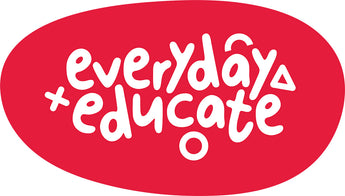Nurturing creativity in children is essential for their overall development and well-being. Encouraging your child's artistic talents can provide a foundation for a lifetime of creative expression, self-discovery, and personal growth. In this article, we'll explore some ideas and tips for fostering your child's creativity and artistic talents, from setting up a creative space to providing opportunities for learning and collaboration.
Understanding Creativity
Creativity is the ability to generate new ideas, find unique solutions to problems, and express oneself through various mediums. It's important to understand that creativity is not limited to artistic pursuits; it encompasses all aspects of life, from problem-solving to social skills. By nurturing your child's creativity, you are helping them develop crucial skills that will serve them well throughout their lives.
Encouraging Artistic Talents
The key to encouraging artistic talents is to create an environment where creativity is valued and supported. This includes providing opportunities for self-expression, recognizing and celebrating individuality, and fostering a growth mindset that encourages experimentation and learning from mistakes.
Setting Up a Creative Space
Location
Designate a specific area in your home where your child can create and explore their artistic talents. This space should be comfortable, well-lit, and free from distractions.
Materials
Stock up on a variety of art materials, such as crayons, markers, paints, paper, and clay. Providing your child with a diverse range of materials will encourage them to experiment with different techniques and mediums.
Incorporating Art into Daily Life
Art Activities
Introduce art activities into your child's daily routine. This can include drawing, painting, sculpting, or engaging in other creative projects that spark their interest.
Creative Play
Encourage imaginative play by providing materials like costumes, props, and toys that can be used in creative ways.
Fostering a Growth Mindset
Encouraging Experimentation
Allow your child to explore different art forms and techniques without judgment. Encourage them to try new things and emphasize the importance of the creative process rather than the final product.
Embracing Mistakes
Teach your child that mistakes are an essential part of the creative process and a valuable learning experience. Encourage them to view setbacks as opportunities for growth and improvement.
Celebrating Individuality
Acknowledge and celebrate your child's unique artistic style and interests. This will help build their confidence and reinforce the idea that their creativity is valued and respected.
Providing Inspiration
Exposure to Different Art Forms
Introduce your child to various art forms, such as painting, drawing, sculpture, photography, and dance. This exposure will broaden their horizons and inspire them to explore new creative avenues.
Visiting Art Galleries and Events
Take your child to art galleries, museums, and local art events. This will give them the opportunity to appreciate the work of others, learn about different styles, and find inspiration for their own creations.
Offering Opportunities for Learning
Art Classes
Enroll your child in art classes that cater to their interests and skill level. This will provide them with structured learning experiences and the opportunity to learn from experienced instructors.
Online Resources
Utilize online resources, such as tutorials, videos, and blogs, to further your child's artistic education and provide them with new ideas and techniques to explore.
Encouraging Collaboration
Art Projects with Friends
Arrange playdates or group activities where your child can collaborate on art projects with their friends. This will teach them valuable teamwork and social skills while fostering creativity.
Participating in Art Competitions
Encourage your child to participate in art competitions, as this can boost their confidence, provide constructive feedback, and offer an opportunity to learn from other artists.
Supporting Artistic Expression
Positive Reinforcement
Praise your child's efforts and acknowledge their accomplishments. This will help to build their self-esteem and encourage them to continue expressing themselves artistically.
Constructive Criticism
Offer constructive criticism that focuses on specific areas for improvement rather than general negative comments. This approach will help your child learn from their mistakes and develop their artistic skills.
Role of Parents and Guardians
As a parent or guardian, it's crucial to support and nurture your child's creativity by creating a safe and supportive environment, providing opportunities for learning and growth, and encouraging their individuality and self-expression.
Conclusion
Nurturing creativity and artistic talents in your child is a rewarding and fulfilling experience. By fostering a supportive environment, providing opportunities for learning and collaboration, and celebrating their unique artistic style, you can help your child develop their creativity and set the stage for a lifetime of personal growth and self-discovery.
FAQs
-
What age should I start nurturing my child's creativity? There is no specific age to start nurturing creativity, as it is a lifelong process. However, early exposure to creative activities can help develop their creative skills from a young age.
-
How can I recognize my child's artistic talents? Pay attention to your child's interests and natural abilities. Encourage their curiosity and provide them with opportunities to explore different artistic mediums.
-
What if my child loses interest in art? Children's interests may change over time. Continue to support their creative pursuits, and offer them exposure to a variety of activities to help them find new passions.
-
How can I help my child overcome creative blocks? Encourage your child to take breaks, try new activities, and seek inspiration from different sources to overcome creative blocks.
-
Can creativity be taught, or is it an innate talent? Creativity is a combination of innate talent and learned skills. While some people may have a natural inclination towards creativity, it can be nurtured and developed through practice, education, and exposure to various experiences.



 Chat with Us
Chat with Us